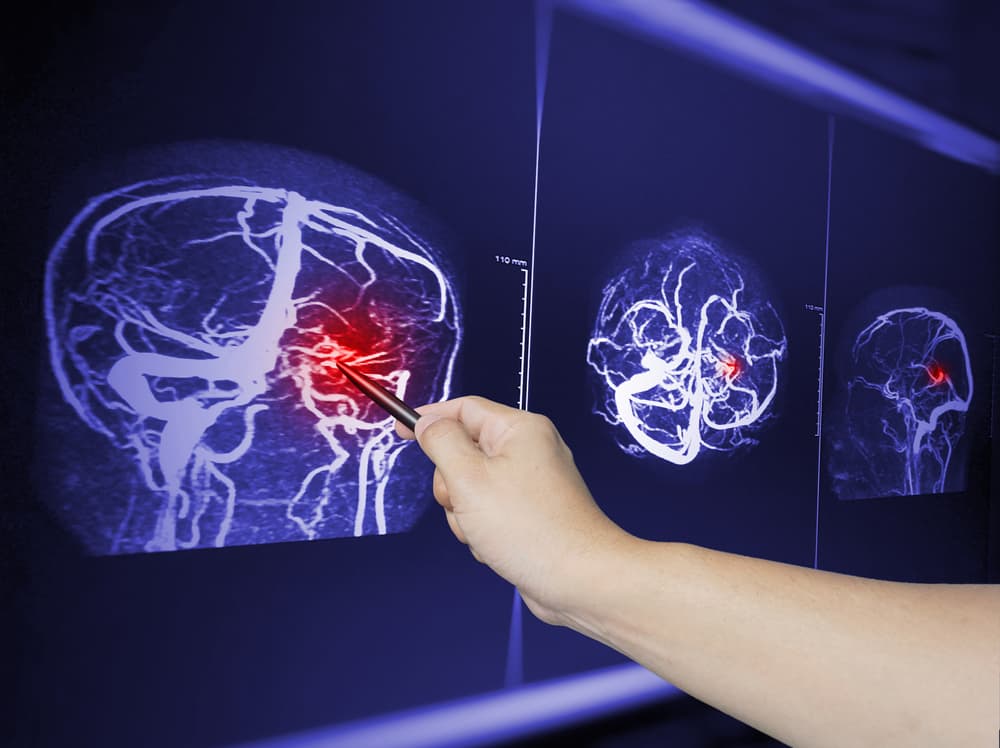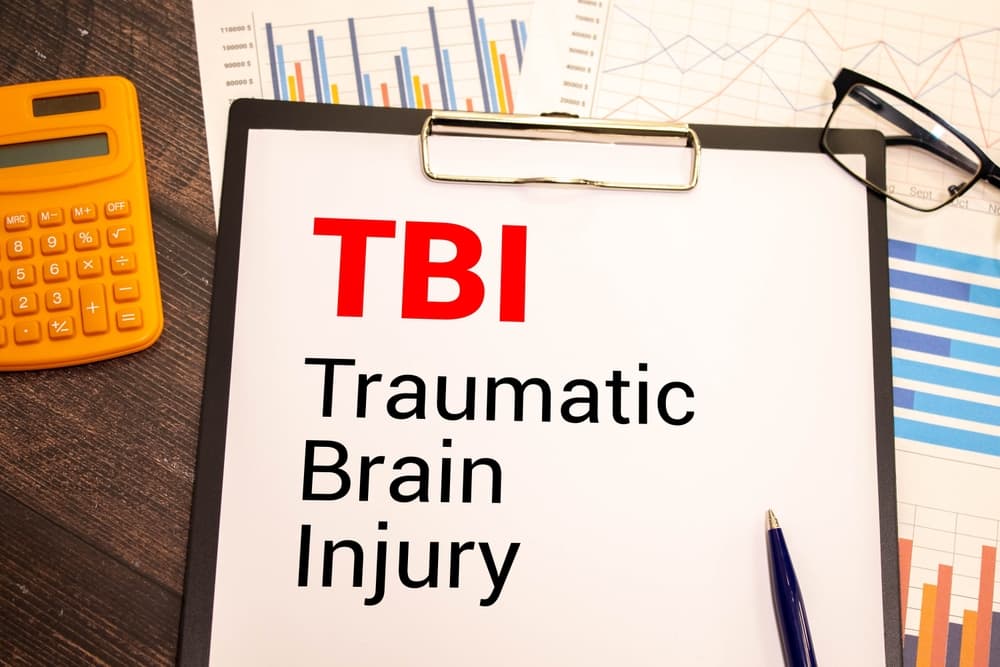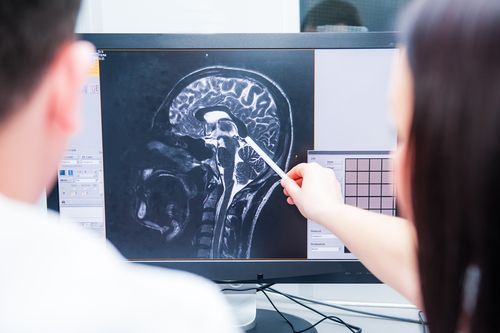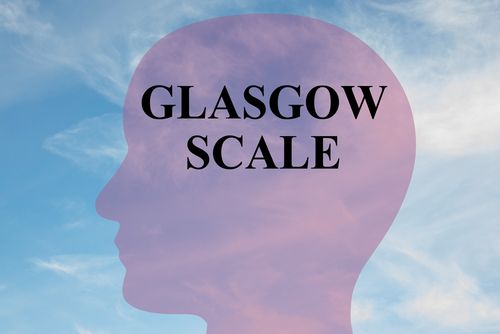Traumatic Brain Injury (TBI) is a serious health concern that affects millions of people each year. Below are some common examples of TBI, their causes, and potential long-term effects.
By understanding these injuries, you’ll be better equipped to recognize them and seek appropriate legal and medical help if necessary.
Defining Traumatic Brain Injury
A traumatic brain injury occurs when an external force causes damage to the brain. This can happen due to a violent blow or jolt to the head or body, or when an object penetrates brain tissue.
TBIs can range from mild (often referred to as concussions) to severe, potentially resulting in long-term complications or death.
1. Concussions: The Most Common TBI
According to the National Institutes of Health (NIH) and the Centers for Disease Control and Prevention (CDC), concussions are the most common type of TBI. Despite often being described as mild brain injuries, concussions can have severe and lasting effects.
Causes of Concussions
Concussions can result from incidents such as:
- Falls: Especially among children and older adults.
- Vehicle-related accidents: Car crashes, motorcycle accidents, and bicycle incidents.
- Workplace accidents: Particularly in construction or industrial settings.
Symptoms of Concussions
Concussion symptoms can be subtle and may not appear immediately. Common signs include:
- Headache or pressure in the head
- Temporary loss of consciousness
- Confusion or feeling as if in a fog
- Amnesia surrounding the traumatic event
- Dizziness or seeing stars
- Ringing in the ears
- Nausea or vomiting
- Slurred speech
- Fatigue
Go to the doctor if you suspect a concussion, as repeated concussions can lead to neurological damage.
2. Contusions: Bruising of the Brain
Brain contusions are another common type of TBI. A contusion is a bruise on the brain caused by tiny blood vessels leaking into brain tissue.
Causes of Brain Contusions

Contusions often result from:
- Direct impact on the head
- Violent shaking of the brain inside the skull
- Coup-contrecoup injuries, where the brain is damaged at the site of impact and on the opposite side as it rebounds
Symptoms of Brain Contusions
Symptoms depend on the location and severity of the contusion but may include:
- Loss of consciousness
- Confusion and disorientation
- Memory loss
- Emotional disturbances
- Difficulty with coordination and balance
- Slurred speech
- Cognitive impairments
Severe contusions may require surgery to reduce swelling and prevent further damage.
3. Diffuse Axonal Injury (DAI): Widespread Brain Damage
Diffuse Axonal Injury is one of the most severe forms of TBI. It occurs when the brain rapidly shifts inside the skull, causing widespread damage to brain tissue.
Causes of Diffuse Axonal Injury
DAI is often associated with:
- High-speed motor vehicle accidents
- Violent shaking (as in shaken baby syndrome)
- Sports injuries
- Falls from significant heights
Symptoms of Diffuse Axonal Injury
DAI can result in serious, often life-changing symptoms:
- Extended loss of consciousness or coma
- Persistent vegetative state
- Severe motor function impairment
- Cognitive deficits
- Memory problems
- Emotional and behavioral changes
4. Penetrating Brain Injuries: When Objects Breach the Skull
Penetrating brain injuries, while less common than closed-head injuries, are often among the most severe types of TBI.
Causes of Penetrating Brain Injuries

These injuries occur when an object pierces the skull and enters brain tissue. Common causes include:
- Industrial accidents involving high-speed projectiles
- Severe falls onto sharp objects
- Debris from explosions or high-speed collisions
Symptoms of Penetrating Brain Injuries
The symptoms depend on the path of the penetrating object and the areas of the brain affected. Some possible symptoms include:
- Bleeding from the head wound
- Loss of consciousness
- Seizures
- Paralysis or weakness in specific body parts
- Difficulty breathing
- Loss of bladder and bowel control
- Coma
Penetrating brain injuries often require immediate surgery and can result in long-term disabilities or death.
5. Anoxic Brain Injury: When the Brain is Deprived of Oxygen
Anoxic brain injuries occur when the brain is completely deprived of oxygen. While not always caused by direct trauma, they are often associated with traumatic events and can have equally devastating consequences.
Causes of Anoxic Brain Injury
Common causes include:
- Near-drowning incidents
- Choking or strangulation
- Carbon monoxide poisoning
- Complications from general anesthesia
- Severe asthma attacks
- Heart attacks or strokes that interrupt blood flow to the brain
Symptoms of Anoxic Brain Injury
The severity of symptoms depends on the duration of oxygen deprivation and the areas of the brain affected. Symptoms may include:
- Short-term memory loss
- Confusion and disorientation
- Difficulty with higher cognitive functions
- Vision problems
- Speech and language impairments
- Movement disorders
- Seizures
- In severe cases, persistent vegetative state or brain death
Recovery from anoxic brain injury can be a long and challenging process, often requiring extensive rehabilitation.
6. Second Impact Syndrome: The Danger of Repeated Concussions
Second Impact Syndrome (SIS) is a rare but potentially fatal condition that occurs when a person suffers a second concussion before symptoms from an earlier concussion have fully resolved.
Causes of Second Impact Syndrome
SIS is most commonly seen in:
- Young athletes who return to play too soon after a concussion
- Individuals who experience multiple falls in a short period
- Victims of repeated domestic abuse
Symptoms and Consequences of Second Impact Syndrome
SIS can develop rapidly and with devastating consequences:
- Sudden dilation of pupils
- Loss of eye movement
- Unconsciousness
- Respiratory failure
- Rapid brain swelling
- In many cases, death or severe, permanent disability
7. Coup-Contrecoup Injuries: When the Brain is Damaged on Both Sides
Coup-Contrecoup injuries are a unique form of TBI where damage occurs both at the site of impact (coup) and on the opposite side of the brain (contrecoup).
Causes of Coup-Contrecoup Injuries

These injuries typically result from:
- Car accidents, especially rear-end collisions
- Falls where the head strikes a hard surface
- Violent shaking, as in shaken baby syndrome
- Sports-related impacts
Symptoms of Coup-Contrecoup Injuries
Symptoms can be diverse and severe due to the dual nature of the injury:
- Cognitive impairments affecting memory and concentration
- Mood swings and personality changes
- Balance and coordination problems
- Sensory disturbances (vision, hearing, touch problems)
- Speech difficulties
- In severe cases, loss of consciousness or coma
Recovery from coup-contrecoup injuries often requires a multidisciplinary approach to address the affected brain functions.
Recovering from a Concussion
Concussion recovery varies from person to person. While it was once believed that brain cells couldn’t regenerate after injury, recent research has shed new light on the brain’s remarkable ability to heal and adapt.
The Science of Concussion Recovery
Current understanding suggests that while neurons (brain cells) generally don’t regenerate in large numbers, the brain has impressive neuroplasticity. This means that even if some brain cells are damaged, the brain can often reorganize itself to compensate for the injury.
Recent studies have shown that:
- The brain can create new neurons (neurogenesis) in certain areas, particularly the hippocampus, which is vital for memory formation.
- Existing neurons can form new connections (synapses) to take over functions of damaged areas.
- Glial cells, which support and protect neurons, play a role in the healing process.
Factors Affecting Recovery
The recovery process and timeline depend on several factors:
- Age: Younger individuals often recover more quickly due to greater neuroplasticity. However, children and adolescents may require more careful management to prevent long-term issues.
- The severity of the Concussion: Mild concussions typically resolve faster than moderate or severe ones.
- Previous Concussions: A history of concussions can complicate and prolong recovery.
- Overall Health: General health, fitness, and lifestyle factors can influence recovery speed.
- Adherence to Treatment: Following medical advice and a structured recovery plan is crucial for optimal healing.
The Recovery Process
Recovery typically involves:
- Physical and Cognitive Rest: Initially, reducing physical and mental exertion is essential.
- Gradual Return to Activities: A step-by-step approach to resuming normal activities, monitored by healthcare professionals.
- Symptom Management: Addressing symptoms like headaches, dizziness, or cognitive issues.
- Rehabilitation: For more severe cases, this may include physical therapy, occupational therapy, or cognitive rehabilitation.
- Emotional Support: Dealing with the psychological impact of the injury and recovery process.
Long-term Considerations
While many people recover fully from concussions, it’s important to be aware of potential long-term effects:

- Increased Risk of Future Concussions: Having one concussion may increase susceptibility to future ones.
- Cognitive Changes: Some individuals may experience subtle, long-term changes in memory or concentration.
- Emotional and Behavioral Changes: Mood swings, irritability, or depression can sometimes persist.
- Headaches: A small percentage of people may develop chronic post-traumatic headaches.
Legal Implications of TBI Cases
At Rosenberg & Gluck LLP, we understand that TBIs can have profound and long-lasting effects on victims and their families.
If you or a loved one has suffered a TBI due to someone else’s negligence, you may be entitled to compensation. Some key legal considerations in TBI cases include:
- Establishing liability: Determining who is at fault for the injury is a significant component of any TBI case. This could involve individuals, businesses, or even government entities.
- Documenting damages: TBIs can result in substantial medical bills, lost wages, and reduced quality of life. Properly documenting these damages is essential for seeking fair compensation.
- Long-term care costs: Severe TBIs may require lifelong care and support. Legal claims should account for these ongoing expenses.
- Statute of limitations: There are time limits for filing TBI claims, which vary by state and circumstance. It’s important to consult with an experienced traumatic brain attorney to protect your rights.
- Expert testimony: TBI cases often require expert witnesses to explain the nature and extent of the injury to the court.
Frequently Asked Questions About Traumatic Brain Injury (TBI)

- How is a TBI diagnosed? TBI is typically diagnosed through physical examination, neurological assessment, and imaging tests such as CT scans or MRIs. In some cases, additional tests like EEG or neuropsychological evaluations may be necessary.
- Can you have a TBI without losing consciousness? Yes, it’s possible to sustain a TBI without losing consciousness. Symptoms like confusion, dizziness, or memory problems can occur even if the person remains conscious throughout the incident.
- How long after an injury can TBI symptoms appear? While some TBI symptoms may appear immediately, others can develop hours or even days after the initial injury.
- What kind of compensation can I seek in a TBI lawsuit? Compensation may cover medical expenses, lost wages, pain and suffering, loss of quality of life, and future care needs. In some cases, punitive damages may also be awarded.
- Will I have to go to court for my TBI case? Many TBI cases are settled out of court through negotiations between attorneys. However, if a fair settlement can’t be reached, your case may go to trial.
Talk to a Traumatic Brain Injury Lawyer About Your Case Today
If you or a loved one has suffered a TBI due to someone else’s negligence, it’s important to seek both medical and legal assistance.
Remember, while we’ve covered some common examples of TBI, every brain injury is unique. Always consult with a doctor for proper diagnosis and treatment.
At Rosenberg & Gluck LLP, we have extensive experience handling TBI cases and can provide the guidance and representation you need during this time. Call us at (631) 451-7900 for a free consultation to learn more.







